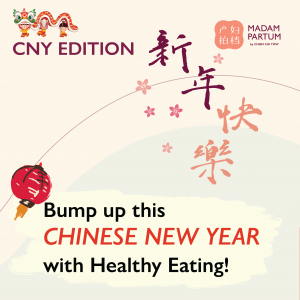
Bump up this Chinese New Year with Healthy Eating!
As we all prepare for Chinese New Year celebration, it’s always good for mommies and
Confinement is a period after childbirth when you recuperate and heal after going through a rigorous 10 months of pregnancy, labour and birth. In Chinese, we call it 坐月子, which Singaporeans usually practice a continuous 28 days confinement period. During this period, traditionally, even across different ethnic races, many observed strict restrictions about what they can and cannot do and meal planning. This is also the period where the mommies will avoid going out unnecessarily and receiving guests at home.

So why is confinement so important? It is a crucial period for you to recover from delivery, restore your health and learn to nurse your baby. After going through 10 months of childbearing, your body has gone through monumental changes, especially so for first time mothers. Hormonal changes, weight gain, fluid retention, stretchmarks and many more, which has put a lot of stress on you both physically and mentally.
Hence, it’s important for you to go through proper confinement care and allow your body to recover, Qi and blood to be replenished and to regain vitality to your pre-pregnancy health.
In Singapore, confinement period is usually practiced for 28 days, for some, it can be up to 42 days. It takes about 3 – 6 months postpartum recuperation for you to regain full vitality. Your body went through significant physiological changes during the 10 months of pregnancy and it will take an equivalent amount of time to have a complete recuperation.
Therefore, it’s important that you need to ensure your confinement is comprehensive to ensure you have a good start in your postpartum recovery.
You can read more about the Golden Period of Postpartum Recovery here.
After going through pregnancy and childbirth, a mother’s body becomes weakened and requires special care to help recuperate and regain vitality. From a TCM perspective, recuperation is notably to be carried out in 3 important stages – focusing on clearing blood stasis and lochia, regulating digestion and nutrients absorption, and to regain vitality.
Based on the 28 days confinement period concept which is widely practiced in Singapore, we have curated a plan for mothers to help them achieve a total and complete recuperation.
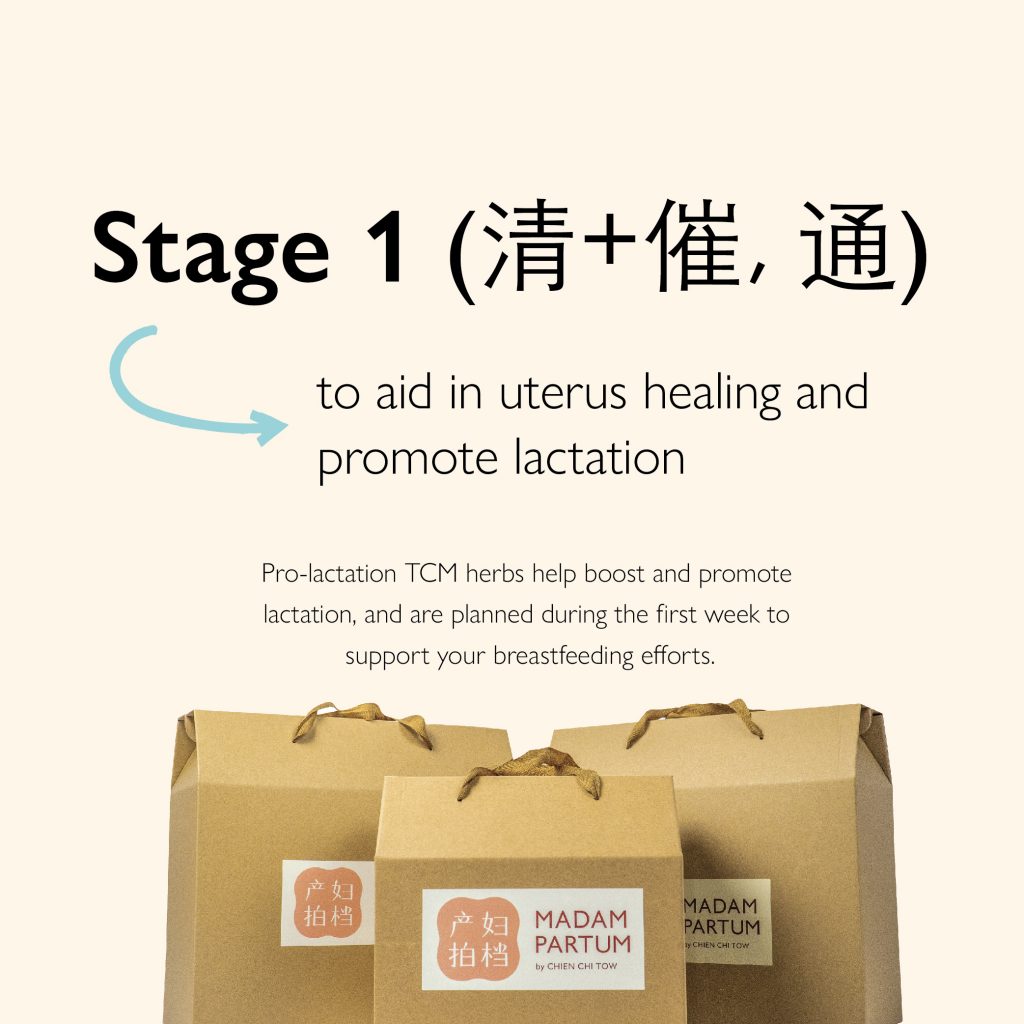
In Stage 1, which is during week 1 of confinement, our focus is to 清+催, 通 , which is to aid in uterus healing and promote lactation. As your uterus begins to contract and heal after your childbirth, it’s important to reduce any blood stasis and lochia for better uterine recovery.
If you are planning to breastfeed, it’s also crucial for you to start nourishing yourself and get a good start in your breastfeeding journey.
Our 28 Days Confinement Soup is specially curated to help you in your postpartum recovery with the first 6 days focusing on use of TCM herbs to reduce blood stasis and lochia and to aid uterus healing. Pro-lactation TCM herbs help boost and promote lactation, and are planned during the first week to support your breastfeeding efforts.

At Stage 2, the focus will be to 调 – to improve digestion, nutrients intake and Qi & blood replenishment. We recommend mothers to consume food and include TCM herbs that will aid in regulating the spleen and stomach to help you digest and absorb nutrients for faster and better recovery.

After recuperation is done at stage 2, it sets the spleen and stomach ready for better nutrients absorption, At Stage 3, 补&养, we start to nourish your liver and kidney to improve your blood composition and to reduce water retention. Based on TCM studies, a well functioning liver and kidney will facilitate good Qi and blood circulation.
From a TCM perspective, many common Post-Pregnancy illnesses and conditions can be linked to Qi & Blood Deficiency, Emotional Imbalance and Improper Diet. So you will need to ensure all these 3 aspects are taken care of, for a complete postpartum recuperation.
As you might have heard from well meaning family members and friends to observe confinement restrictions for mothers during this period, and you might think to yourself, how far should I observe these rules. We are here to help you understand from a TCM perspective and to modernise it to suit the current context.
You probably hear advice such as ‘You need to put on extra clothes’ and ‘Don’t turn on the aircon or fan”, wondering if these are true.
From a TCM perspective, it’s important to keep your body warm during confinement as your body constitution is weakened after birth and you have lower immunity. Hence, we will advise you to avoid putting yourself in the situation where you could catch a cold easily.
However, we do understand that the humidity and hot weather can be unbearable at times in tropical country like Singapore, so it’s definitely okay to turn on air-conditioning or fan, but do be mindful to keep the temperature above 24 degree celsius and avoid being directly exposed to the wind flow as this might cause you to catch a cold.
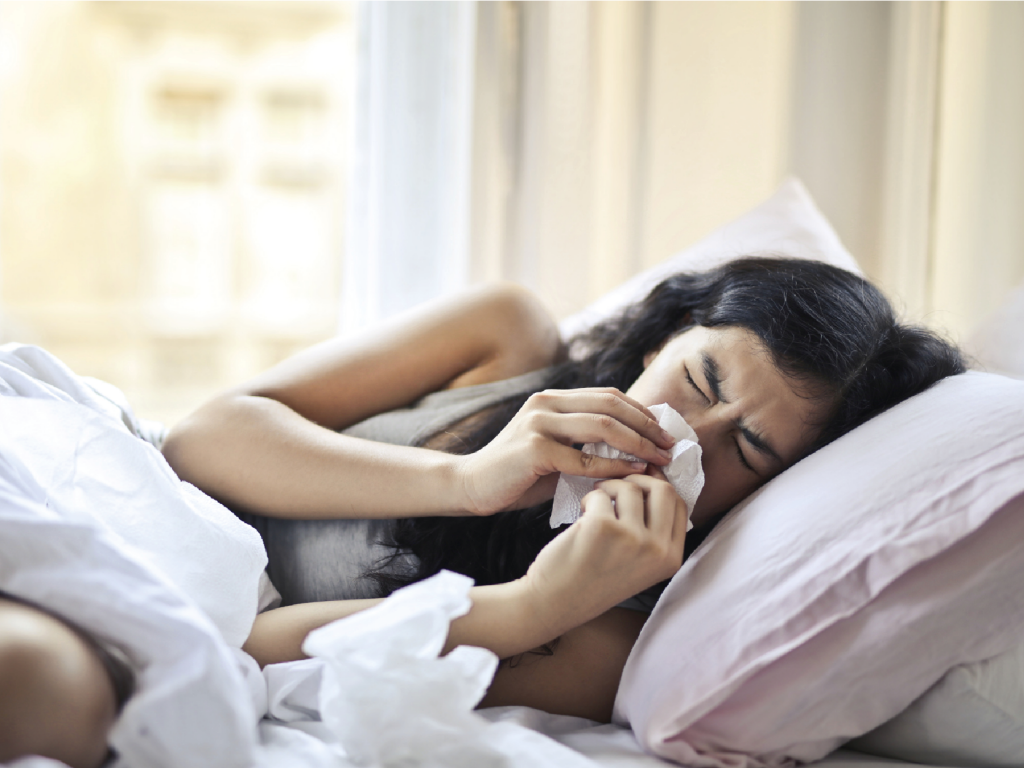
In the past, mother and baby were not allowed to leave their home, and were to be strictly confined indoors during the whole confinement period.
However, in modern days things are different, mortality rate is low and the weather and environment in Singapore are less harsh, so there isn’t a need to avoid going outdoors.
With that, we would recommend that you stay indoors as much as possible, as the outdoor conditions are unpredictable and running into rainy weather might cause you to fall ill. If you really do need a break or go for your medical appointment, make sure you bring along a warm piece of outer covering like a shawl or even use a nursing cover for yourself and your baby before heading out.

There is an old saying that mothers shouldn’t shower during confinement, as it will cause you to fall sick. This saying isn’t without any truth, as bathing in the past was usually with cold water and the water is usually collected from the water well or rain. And mothers in olden days will risk showering in contaminated water and catching a cold.
However, in the modern Singapore context, the humidity and the hot weather can cause you to perspire and get all sweaty throughout the day. Under that condition, not bathing or showering can potentially cause inflammation to the wound or your uterus.
It’s also safe to note that in modern-day Singapore, water is well treated and hot water is easily accessible at a touch of a button. We recommend that you add TCM herbs to your bath, such as Madam Partum’s 28 Days Confinement Bath, to help with improvement of overall blood circulation, repel dampness and ‘wind’, and most importantly, allow you to maintain good and proper hygiene. A daily bath will also uplift your mood and keep you feeling comfortable throughout your confinement period.
Thinking that the confinement period would be the best time for you to catch up with the latest drama? If yes, we have bad news for you. On the contrary, this is the time to rest as much as you can.
From a TCM perspective, we deemed it as 视伤血, which indicates that your sense of sight depletes your Qi and blood, and while you are tempted to start your Korean drama marathon or if you really have to start working on your laptop, we do advise you to take breaks in between to allow your eyes to rest. Also, an idea would be to wear Blue Light Filter glasses to reduce eye strain.

As Singaporeans are more health and fitness conscious, some mothers do exercise regularly before and during her pregnancy, and are looking forward to exercising after giving birth.
Exercising can help in improving your blood circulation to boost Qi and energy recuperation. We recommend mothers to take it slow, and not to over exert or engage in intense exercise which might cause an incision wound to tear.
Activities you should avoid are high intensity or cardio exercise and lifting heavy items. As these might affect your back or even uterus and postpartum recovery.

After childbirth, it is highly recommended for you to put on a binder after birth to support your muscles, help the uterus to get back to its original size and offer gentle compression that holds muscle and ligaments safely in place as your body heals . However, we do not recommend wearing your binder too tight as this could cause tissue and muscle damage, restrict movement and the ability to breathe properly.
Our body sculpting corsets are designed specially in 3 separate pieces for Post-Partum mommies to get back to pre-pregnancy shape faster. To tuck in the loose tummy muscles that have been overstretched by the pregnancy belly after 10 months. It assists in uterus recovery and helps to alleviate back aches especially at the lower back. It is designed for easy wearing and removing throughout the day.
For mommies who wish to try to get back to your pre-pregnancy body shape soonest, apply and massage in Madam Partum’s Slimming Oil before putting on our 3pc Body Sculpting Corset to help in breaking down fats and stubborn cellulite by increasing blood circulation and detoxification.
After childbirth, your postpartum body is depleted of Qi and energy, and Madam Partum’s TCM Qi-Boosting massage provides acupressure points stimulation along Meridian channels to help correct Yin and Yang imbalance. Tuina techniques also reduce blood stasis and lochia, help uterus contraction and reduce flatulence while improving overall immunity.
An additional point to mention is that our Post-Partum Massage also incorporates pro-lactation techniques to help you improve your breast milk supply. Speak with your therapist so that she can assist you in achieving a good head start in your breastfeeding journey.
If you have any questions about other postpartum care planning queries, you can connect with us via WhatsApp at 8166 0060.
Other than physical care, your dietary and nutrition intake is also a very important aspect in your postpartum recuperation and healing. From a TCM perspective, more doesn’t necessarily mean better, and it’s important that you adopt an adequate and balanced diet for optimal Postpartum Recuperation.
We shared about the 3 Stages of Recuperation, to focus on adjusting your diet plan and include the consumption of TCM herbs in your meals to help in your recuperation process.
We recommend you to drink 生化汤 (Postpartum Tonic Soup) after birth to help clear and reduce lochia to speed up uterus healing and prevent inflammation. After Postpartum Tonic Soup, we will recommend mothers who are planning to breastfeed to take TCM herbs such as 通草 (Tong Cao), 桔梗 (Jie Geng), 黄芪 (Huang Qi), 党参 (Dang Shen), 当归 (Dang Gui) and 麦冬 (Mai Dong) which are known to boost breast milk supply.
There are also foods that can help boost breast milk supply, such as Green Papaya, Black Chicken, Sesame Seeds and Brown Rice.


At Stage 2, we focus on strengthening spleen and stomach for better digestion and nutrients absorption, some of TCM herbs that you can consume are 淮山 (Hui Shan), 茯苓 (Fu Ling), 党参 (Dang Shen), 白术 (Bai Su), 莲子 (Lian Zi), 甘草 (Gan Cao)
In TCM methodology, 以形补形, the consumption of food ingredients that resemble or correspond to human body/inner organ such as pig stomach can help strengthen your spleen and stomach functions.
After strengthening your digestion and nutrients absorption, our next focus will be consuming food and TCM herbs that nourish your liver and kidney to help in Qi and blood circulation, reduce water retention and promote weight loss.
We recommend mothers to consume 补腰汤 and 养血汤 to nourish you liver and boost your kidney functions. TCM herbs 杜仲 (Du Zhong), 巴戟天 (Ba Ji Tian), 牛膝 (Niu Xi), 熟地黄 (Shu Di Huang) and 桑寄生 (Sang Qi Sheng) can help to nourish liver and kidney function.
Other than that, the TCM herbal soup with 当归 (Dang Gui), 熟地黄 (Shu Di Huang), 何首乌 (He Shou Wu) also boost Qi and blood circulation.For these TCM herbs, you can consider cooking it with Pig tail or Black Chicken to achieve a better nourishment result.

During your confinement, it’s recommended to consume foods that are high in protein, iron, calcium and carbohydrates, as it’s important for your postpartum recuperation and healing. Also, do remember to eat more meals with smaller portions so as to help with your digestion and nutrients absorption.
From a TCM perspective, there are types of food which we will discourage mothers to eat during her confinement as it will put an additional strain on the digestion and absorption of nutrients.

Foods such as watermelon, coconut, tomatoes, radish, pumpkin and ice-cream are generally 寒 (Cold) in nature, which will affect your digestion and nutrients absorption.
Other than that, food that are 寒 (Cold) will also affect your Qi and blood circulation. Hence, it is advisable to avoid food that is cold or chilled during your confinement.
Oily and greasy food such as butter, animal fats, deep-fried food or BBQ food will also affect your digestion and nutrients absorption, and might cause blocked milk ducts which will affect your breast milk flow.


As your spleen and stomach are still recuperating after childbirth, it’s best to avoid hot and spicy food such as chilli, garlic, wasabi and curry as these foods will also affect your digestion. Also, these foods might affect the taste of breast milk which your baby might reject too.
Strong flavour food such as mala sauce and chewy food will cause additional stress on your spleen and stomach during digestion. Also, these strong flavour foods might also cause uterus contraction and affect the taste of your breast milk.
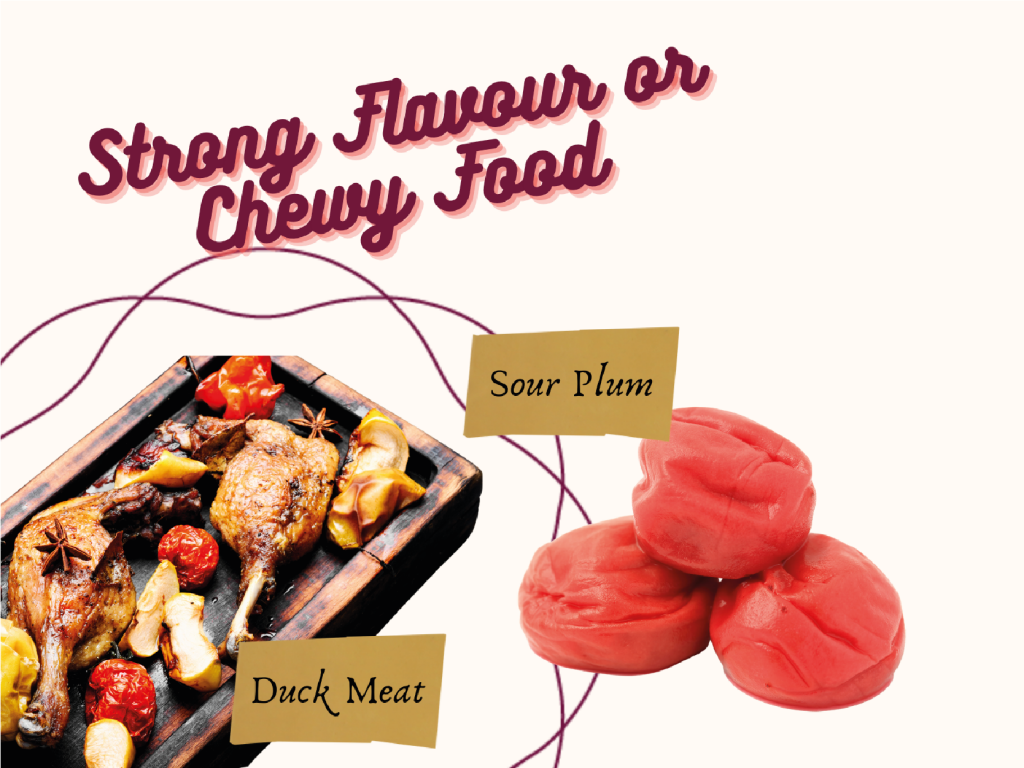
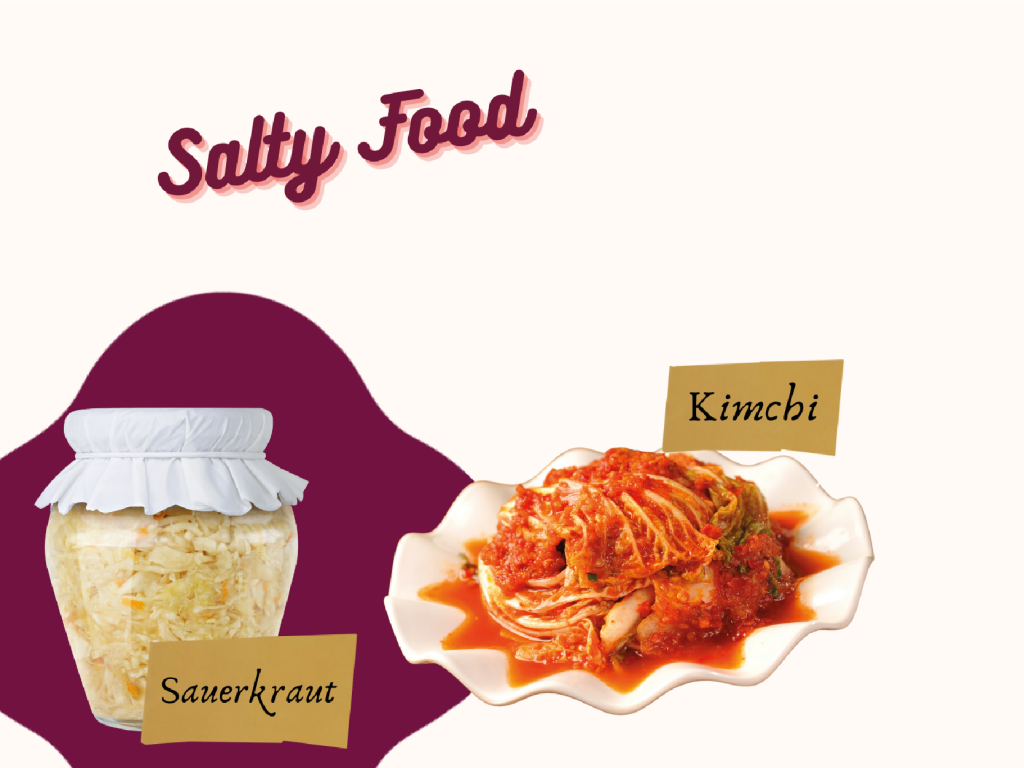
Heavily salted or seasoned food will put stress on your kidney and affect the recuperation process and function. The additional salt intake will build up your water retention causing delay in your recuperation and weight loss progress.
Here are some confinement dishes that are nutritious, and packed with many benefits.

One of the all-time favourite confinement dishes, and it’s a dish which everyone in the family can also enjoy!
Recommended Ingredients
Steps to Cook
The nutrient packed dish that contains multiple vitamins and minerals including iron, which is much needed during your confinement. It’s also a very easy to cook dish with simple steps and a short ingredient list.
Recommended Ingredients
Steps to Cook
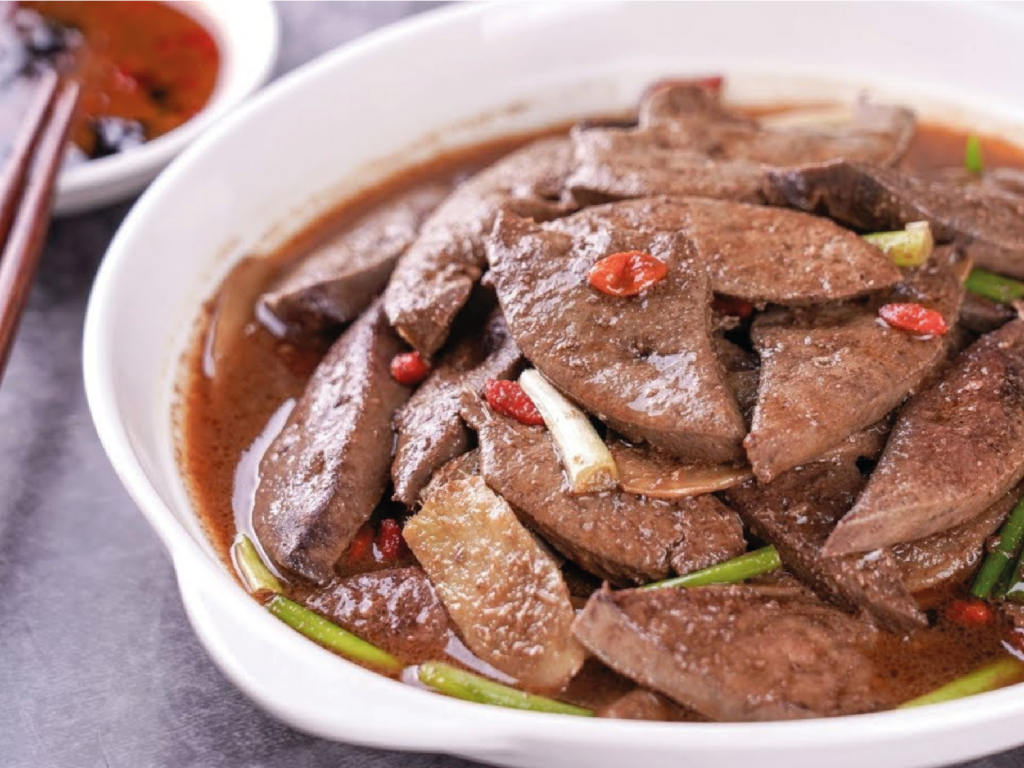
We have shared a couple of Good Dietary Tips as a guide for your confinement planning. If you require special dietary planning, you can drop us a WhatsApp at 8166 0060 to find out how you can get a personalised plan based on your health and body constitution.
While food is an important aspect in confinement planning for a total and complete recuperation, there is an aspect that is equally important to your Physical Care and Dietary Planning, and that is your Emotional Well-being!
Many people tend to forget that life after birth isn’t easy when they give their kind advice. It’s not that they don’t care about you, but it’s just something we tend to neglect. It’s definitely normal for you to feel frustrated, exhausted and moody at times, and life afterbirth will add on more stress to you as you worry about your baby’s well-being and handling your baby’s cranky behaviour.
Ultimately, it’s a new lifestyle that you are trying to adapt to right after you gave birth to your baby. So it’s normal if you experience baby blues and this occurs on 80% of new mothers, and it will get better in 2 weeks as your body adjusts to the hormonal changes after birth.
So what’s baby blues? It’s the most common postpartum syndrome that occurs in about 80% of new mothers. It’s thought to be linked with your hormonal changes after you gave birth.
What you will experience
During this period, some common symptoms are crying, anxiety, and feeling restless or being overwhelmed; these are often felt by new mothers due to the added stress and responsibility that a newborn can bring. This can also be true of experienced mothers.
Adjustments to the new arrival, breastfeeding, and interrupted sleep are some of the woes every new mother will experience. Women can experience depression and anxiety during pregnancy and after delivery due to physical, biological and emotional adjustments during this period. However, most are able to cope after the initial adjustment period.
Statistics have shown that about 10% – 15% of mothers experience postpartum depression and it might eventually interfere with your ability to care for your baby and handle other daily tasks.
If you suspect or experience some of the symptoms listed below which have persisted or have worsened after 2 weeks, you are strongly encouraged to seek advice from a doctor or healthcare professional. The faster you seek advice, the faster you walk out of the condition.
It’s easy to devote all your time to your baby, but a little self-care goes a long way for you. It is important to have ample rest, so that your body can adjust to the hormonal changes.
With the understanding of hormonal and lifestyle changes causing you to experience Baby Blue or potentially Postpartum Depression, consider these tips on how to overcome Baby blues or even Postpartum Depression.
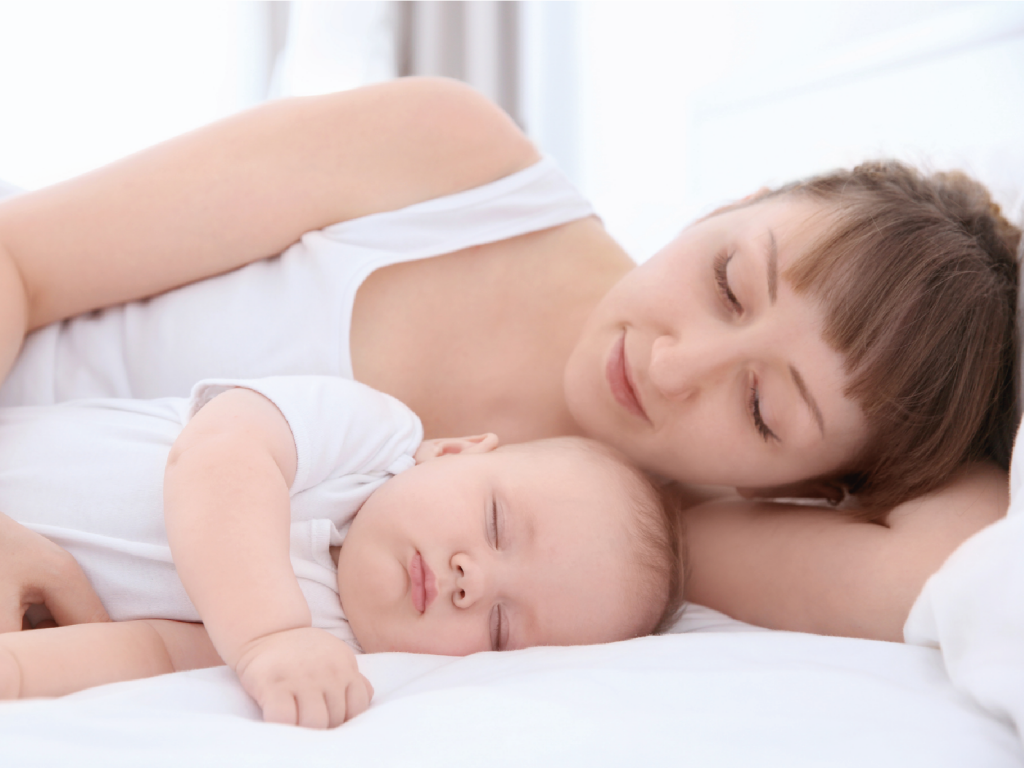
Sleep deprivation, especially for breastfeeding mothers who feed on demand, is one of the major changes to your lifestyle after birth. Nap whenever your baby is sleeping and get help from your husband or immediate family.

As the saying goes “it takes a village to raise a child”. Trust your husband or immediate family members to help with household chores,food preparation and parenting duties such as diaper changing or bathing the baby. One important mindset you can consider to adopt is to embrace the mess at home, and focus on the immediate tasks on hand which is resting and taking care of your baby.
You might also want to prepare yourself ahead with the knowledge and support needed during your postpartum journey. For instance, if you are planning to breastfeed, you can try to understand what breastfeeding is about and the challenges you might be facing, and how you can overcome them. If you are a first time mommy who is planning for breastfeeding, you can find out more about breastfeeding at our Breastfeeding Article.
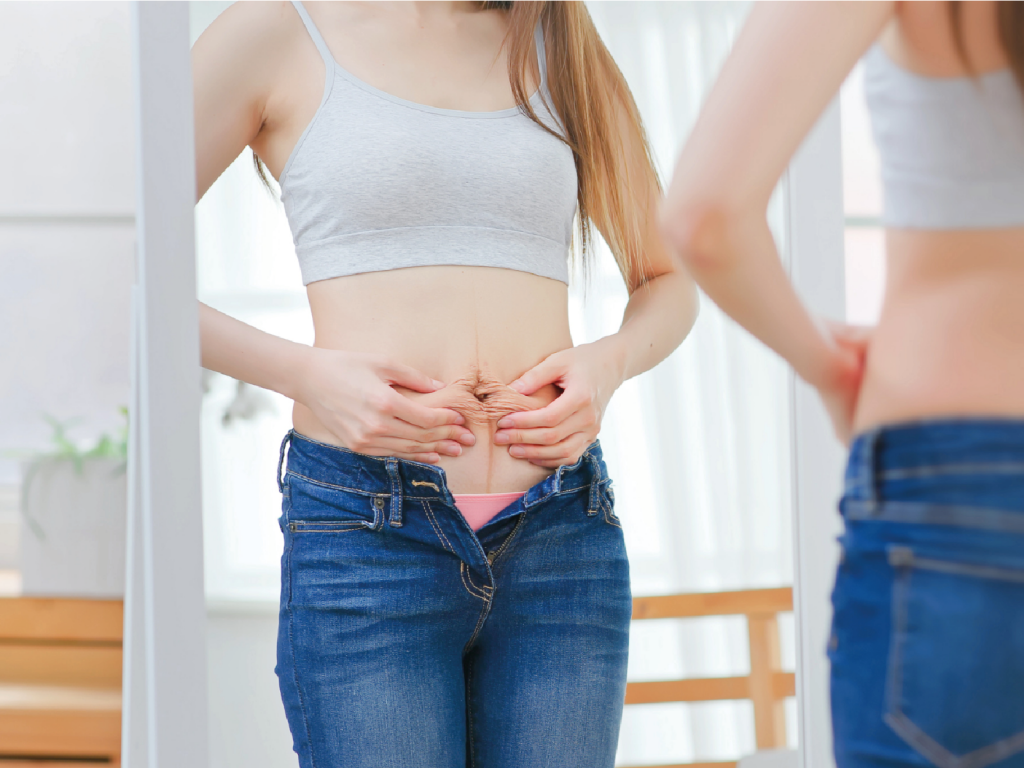
In the aftermath of childbirth, many exhausted moms feel blindsided by an assault of physical changes: hair loss, puffiness, loose skin, spider veins, scars, stretch marks and more.
We all understand that a postpartum body is just not the same as your pre-pregnancy body and it’s really okay. While you might be very concerned about whether you can even get back to your pre-pregnancy shape ever, a realistic and sustainable weight loss is the best way. For breastfeeding mothers, it’s important for you to consume a well balanced and nutritious diet to be able to produce enough breast milk supply naturally for your baby.It’s good news that the additional weight will naturally shed off when you breastfeed
Don’t focus on trying to lose all that weight that you have gained immediately after childbirth. Rather, focus on embracing your postpartum body now and be really proud of yourself.
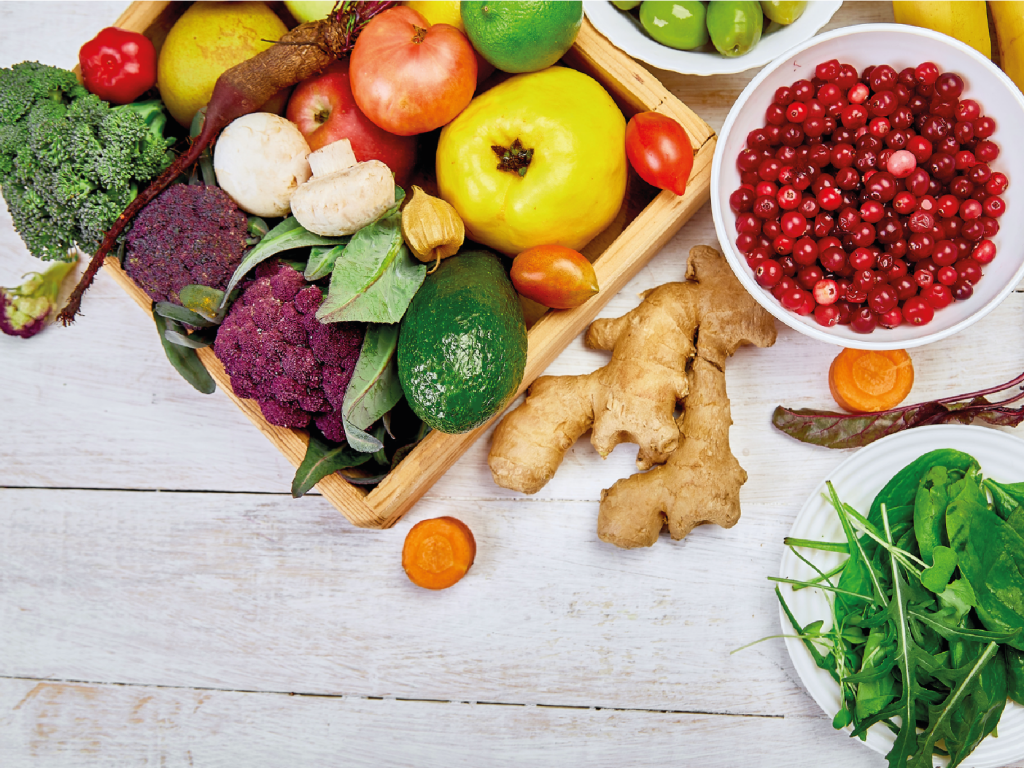
Eating a healthy and well-balanced diet with nourishing TCM herbal soups and red dates tea can help you regain your vitality. We have shared a few recipes which you can consume during your confinement period.
You can consider consuming milkfish soup which is high in DHA and EPA, and it can help in healing and also prevent postpartum depression. You can boil it with ginger and add in TCM herbs such as 黄芪 (Huang Qi), 当归 (Dang Gui) and 枸杞子 (Goji berries).
Plan for your TCM Meridian Massage to achieve optimal results for your postpartum recuperation. Massage helps ease new mothers into motherhood by offering both physical and emotional benefits. It will improve your sleep, resolve your aches and pain,and promote relaxation to reduce stress.
TCM Meridian Massage focuses on massage along the meridian channels and by stimulating the relevant acupoints, such as 百会穴 (Bai Hui), 内关穴 (Nei Guan) and 太冲穴 (Tai Chong) , it can also help to relieve postpartum depression.
Other than meridian point massage, studies have also shown that acupuncture is also another effective TCM treatment to support natural healing for mothers whose body has been weakened and suffers from Qi deficiency.
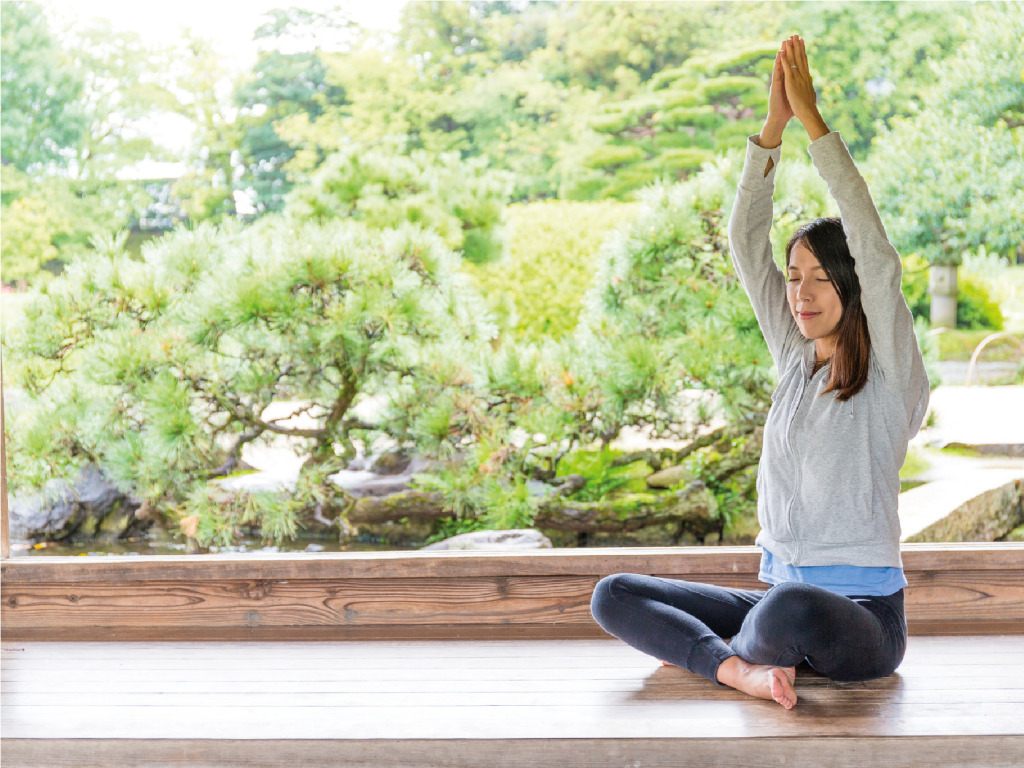
Many research and studies have indicated that exercising can have an antidepressant effect, and it also promotes Qi and blood circulation.
While we recommend you to stay indoors as much as possible during the confinement period, you can still plan your exercise regime that is not too intensive such as yoga which helps you tone your stomach muscles, or kegel exercise. Do remember not to exert or strain yourself until your gynae has advised that it is okay for you to resume your intense exercises.
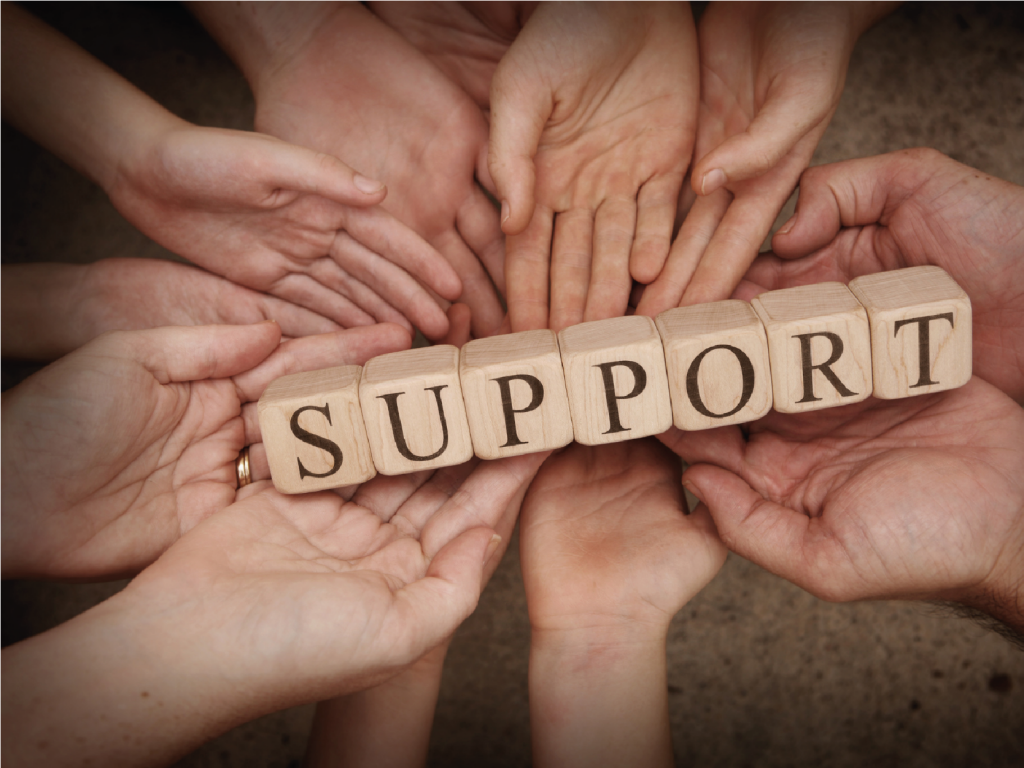
There are many support groups within your reach! You have your immediate family to help you with household tasks at home. Friends who can help you to run those extra errands when you need them. There are support groups online such as Breastfeeding Mothers’ Support Group (BMSG) and New Mothers’ Support Group whom you can turn to for advice amongst new moms who are dealing with the same transition into motherhood about your worries, insecurities, and feelings.
Dont keep the feelings all to yourself. In addition to the practical help your friends and family can provide, they can also serve as a much-needed emotional outlet. Share what you’re experiencing—the good, the bad, and the ugly—with at least one other person, preferably face to face. It doesn’t matter who you talk to, so long as that person is willing to listen without judgment and offer reassurance and support. Communication is key!
Ultimately, it’s about working together with all the resources you have to help you ease into motherhood and enjoying the journey of parenting. So start talking to your partner and family on how they can help you and look for advice out there!

As we all prepare for Chinese New Year celebration, it’s always good for mommies and
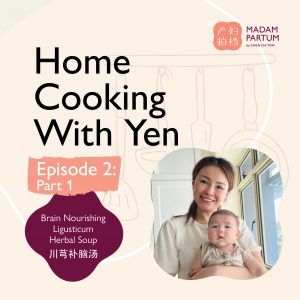
How to cook a bowl of yummy delicious soup in 3 simple steps that is
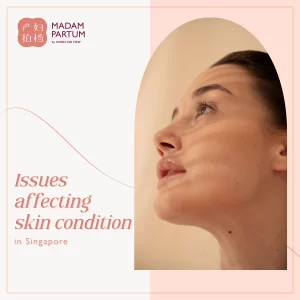
Living in Singapore’s humid climate and urban environment can take a toll on your skin.